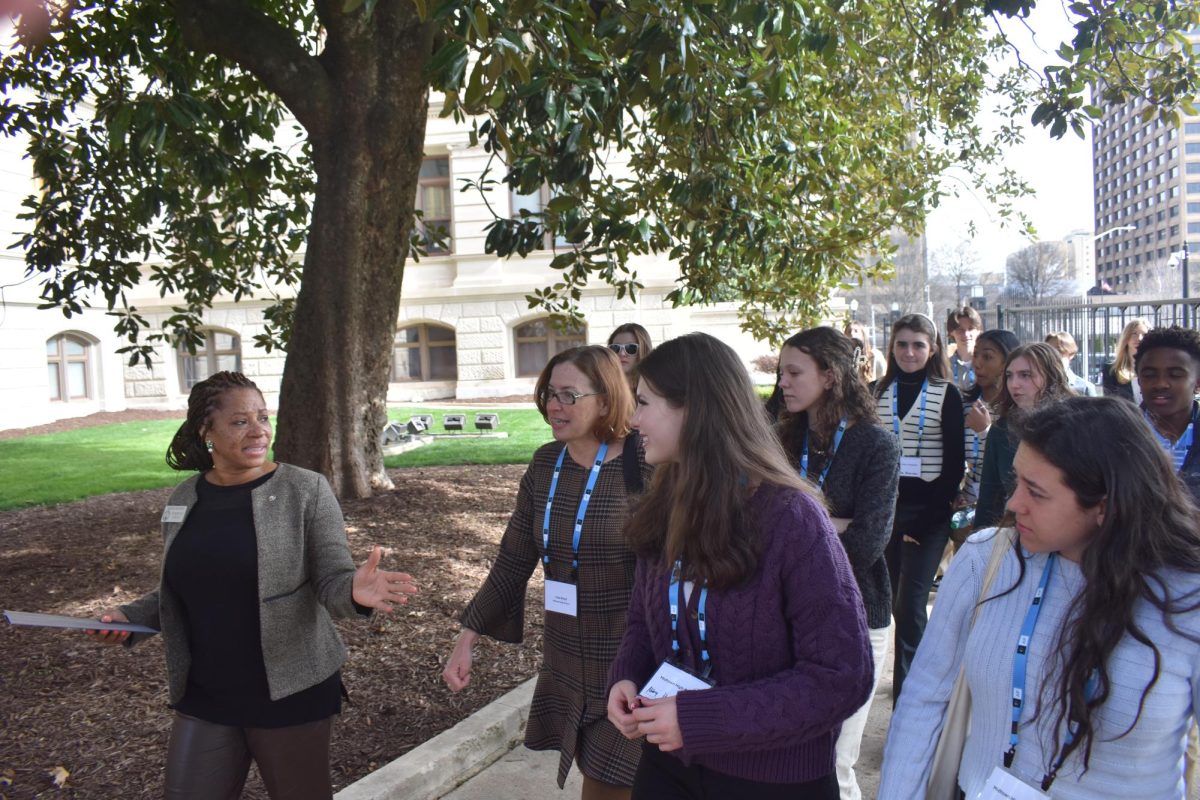As Superintendent Erroll Davis announced his final redistricting recommendations in March 2012, another change quietly took place within the school system: the Office of High Schools, which coordinated curriculum, programs and instruction for all APS high schools, shut its doors.
At the same time, school reform teams, which oversaw groups of middle and elementary schools, were dismantled. Instead, each high school and its feeder middle and elementary schools were grouped into a single “cluster,” and each cluster falls into one of four regions: East, West, North or South.
APS communications director Keith Bromery said this change is intended to facilitate communication between high schools and their feeder schools. The old model, in which high schools were separated from elementary and middle schools, sometimes created problems for students as they transitioned between schools.
“[The cluster model] was intended to consolidate the schools in the various regions to more align the curriculum in terms of the courses offered,” Bromery said.
Former superintendent Beverly Hall created the Office of High Schools to oversee the High School Transformation, an initiative to transform every traditional high school in APS into small learning communities. That project, Bromery said, is now considered complete.
Prior to redistricting and the establishment of the cluster model, some eighth-graders at Coan and King middle schools transitioned to Grady, while others transitioned to Maynard Jackson. Inman is now the only middle school feeding into Grady. Sharon Walz, a counselor at Inman, believes the new model will smooth eighth-graders’ transitions to high school and enhance ties between high schools and their feeder schools.
“I just felt like when you had the old model … it was too separate,” Walz said. “I felt like they did things independent of what we did in the School Reform Team.”
In addition to overseeing the High School Transformation, the Office of High Schools performed a number of duties, including approving field trips, writing guidelines for teachers, aligning curriculum across high schools, creating summer enrichment programs and providing resources, instructional coach Brandi Sabb said. Those tasks will now be carried out by the regional executive directors and their staffs.
The Grady cluster, along with the Jackson cluster, falls into the East region, which is overseen by executive director David White, the former principal of E. Rivers Elementary School. White said he meets with other region directors a few times each week and talks with them every day. He also communicates regularly with the principals of schools in his region.
“I actually believe our high schools will benefit from being more connected, directly connected, to the work of their feeder elementary and middle schools and will be more in touch with the communities they serve as we begin to foster greater commitment to a feeder pattern of schools for each community within the city,” White said.
Math teacher Andrew Nichols said he believes the implementation of the cluster model and the dissolution of the Office of High Schools were the right moves for the district.
“When we had split feeder patterns, you couldn’t effectively communicate with people who taught kids in grades coming up to yours because they came from so many places,” Nichols said. “There is the potential for a lot of vertical alignment there. We’ll see how well it’s implemented.”
Despite optimism about the potential benefits of the cluster model, the transition has not been seamless. Nichols and English teacher Mario Herrera said they never received communication from the district explaining the closure of the Office of High Schools. Since the Office of High Schools had been responsible for approving field trips, Herrera did not know where to send the paperwork to enable the debate team to take a trip to North Carolina in September.
“I sent an email to the appropriate people—or so I thought—at the East region,” Herrera said. “I sent it, but I’m not sure it was to the correct people.”
Eventually, with the assistance of Sabb, Herrera contacted a district official with the authority to approve the necessary paperwork, but it was too late for the team to go to the North Carolina tournament. Sabb said the confusion over field trips reflected a lack of clear instructions regarding some of the Office of High Schools’ former tasks.
“There’s not clarity with who to communicate with,” Sabb said. “With so much change at such a rapid rate, there are sometimes loose ends that need to be tied up.”
Grady parent Abby Martin said she believes the closure of the Office of High Schools has the potential to bring positive changes to the district. But she does not think the cluster model will prove a magic bullet for the challenges schools face.
“If we really truly can plan for a child’s education [from kindergarten through 12th grade] and it’s really intentional then I think it can be a remarkable thing,” Martin said. “But just reconfiguring schools and calling them clusters, if that’s all that does, then it’s no different from changing where you put your seats on the Titanic.”







